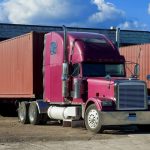According to Korean media reports, South Korean elephant food group (daesang Corp) recently acquired traffic, a 3PL third-party logistics company in North America.
The 340billion won (about US $260million) acquisition was completed through UTC investment, a private equity company affiliated to elephant group, and forest partners, another Korean private equity company. Kuk Yu Jin, head of Korean business at Blackstone, an American investment management group, facilitated the acquisition of traffic.
It is understood that traffic, with about 500 employees, is a large logistics enterprise providing comprehensive logistics services in North America such as the United States, Canada and Mexico. Elephant group is expected to act as an exclusive logistics company in the process of business expansion in North America.
Another shipper has entered the field of logistics! A large food enterprise announced the acquisition of a third-party logistics company
Elephant group recently raised 45billion won in cash by selling the management rights of one of its brands. If this is reinvested in traffic, it is expected to create synergy with its food businesses in North America, such as the large pickle factory in Los Angeles.
The food of elephant group is mainly sold under the brands of chungjungwon and jongga. The company is also the largest monosodium glutamate producer in South Korea, with a market share of 75%.
With the container freight rate rising several times, the supply chain is seriously congested and the transportation capacity is in short supply. Some freight interest groups seek to manage the rising transportation costs through vertical integration.
Last November, American Eagle, an American clothing retailer, spent $350million to acquire quiet logistics, a logistics operator. The operator operates eight logistics centers across the United States and cooperates with peloton, away and outdoor voices. Three months ago, American Eagle acquired airterra, a shipping solution provider, while Ashley Furniture, an American furniture company, acquired part of the business of Wilson logistics, a transportation logistics company.
In January this year, Chinese furniture manufacturer lege Co., Ltd. invested and ordered a 1800teu container ship in Huanghai shipyard at the price of 32.6 million US dollars to improve the efficiency of the supply chain and reduce transportation costs.
At the end of last year, Sarah banks, global head of freight and logistics at Accenture, said that vertical integration might pose a competitive threat to logistics companies. She said, “my worry about freight forwarders is that if they don’t invest, shippers will invest. The biggest competitive threat faced by freight forwarders is not carriers or other freight forwarders, but shippers.”

